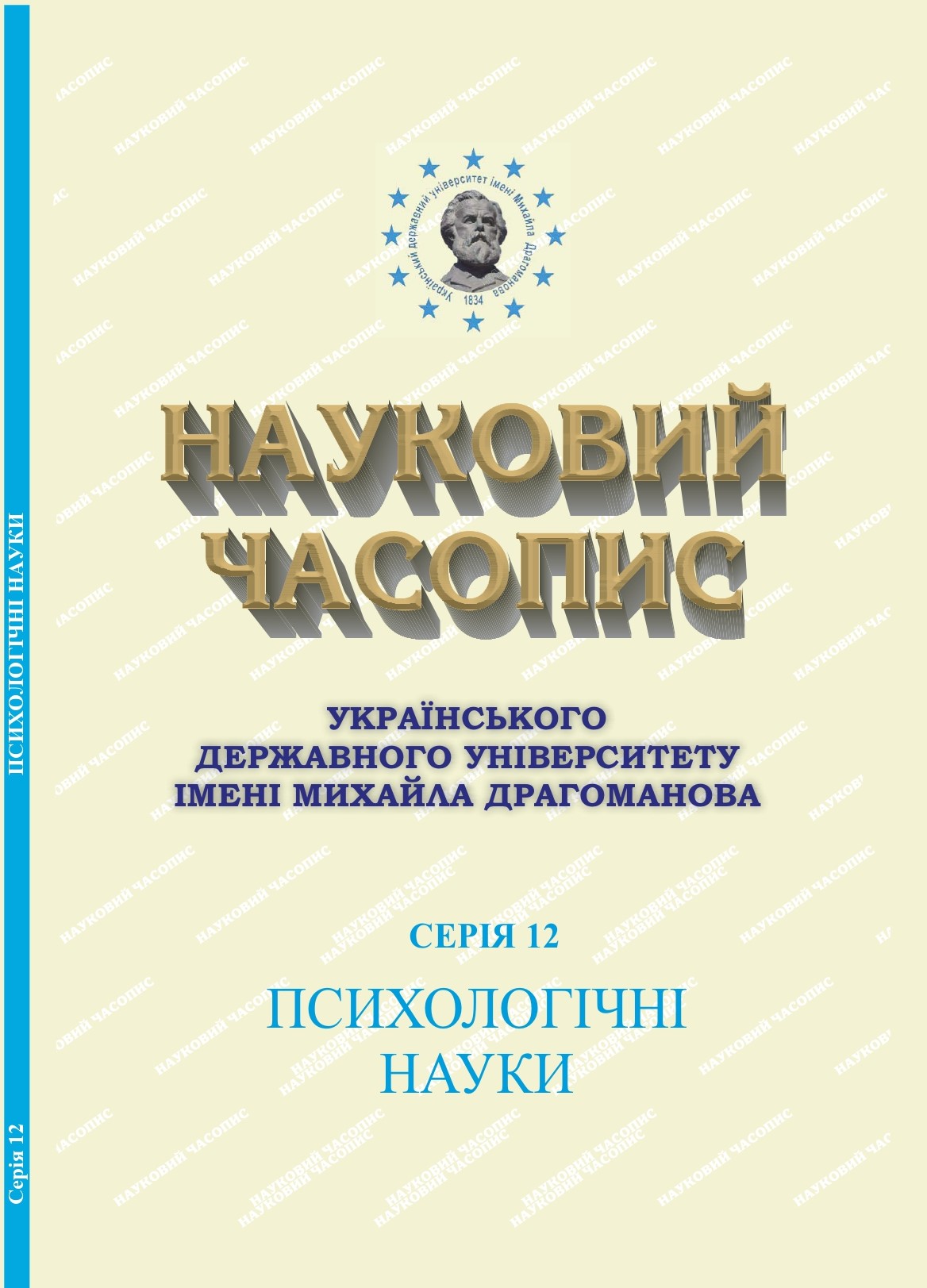PERSONAL REACTIONS OF WOMEN AT THE REMISSION STAGE OF CANCER DISEASE
DOI:
https://doi.org/10.31392/UDU-nc.series12.2024.23(68).06Keywords:
cancer, fear of cancer recurrence, psychooncology, survivorship and character traits, coping-strategies.Abstract
The article presents the results of a study of the personal characteristics of female cancer survivors and the level of fear of cancer recurrence they have at the stage of remission. The results were statistically processed, the data obtained were analyzed taking into account the world experience of research in this field. The purpose of the work is to conduct a study of the personal psychological characteristics of women with cancer at the stage of cancer remission, determine the existing level of fear of cancer recurrence and identify the dominant coping strategies (coping strategies) inherent in them during remission. Methods: theoretical (analysis, synthesis, generalization), empirical (testing, questionnaire), methods of statistical analysis of test data using IBM SPSS, analysis of the results obtained. Results: it was determined that more than half of the respondents use adaptive cognitive and emotional coping strategies, and only a third of the participants have adaptive behavioral coping strategies. Almost half of the participants demonstrated high scores on the Agreeableness and Conscientiousness scales of the Big Five questionnaire, self-control and responsibility, as well as emotional warmth and cooperation. A Pearson correlation was found between behavioral coping strategies and the level of fear of cancer recurrence, but no correlation was found with tolerance for uncertainty. At the same time, it was observed that more than half of the participants have high personal anxiety. The results of assessing the clinical level of fear of cancer recurrence according to the screening scale with the standard threshold value of the developers of the cancer recurrence fear questionnaire and the total scores of the questionnaire differ significantly from each other, so this issue requires additional study to choose a threshold value for Ukrainian realities. We can see the prospects for further research in deepening the study, in particular, by increasing the sample of subjects with the involvement of male individuals and representatives of various socio-demographic statuses with various types of oncology.
Referenses
- Barko, V.I., Barko, V.V., Kyriienko, L.A. (2018). Adaptatsiia opytuvalnyka "Velykoi piatirky" dlia vykorystannia psykholohamy Natsionalnoi politsii Ukrainy [Adaptation of the "Big Five" questionnaire for use by psychologists of the National Police of Ukraine]. Nauka i pravookhorona – Science and law enforcement, 3, 229–237 [in Ukrainian].
- Lysnyk, K. A. (2021). Metodyky doslidzhennia vzaiemozviazku rivnia strakhu retsydyvu raku ta sotsialno-psykholohichnykh osoblyvostei osobystosti onkooduzhuiuchoho [Methods of researching the relationship between the level of fear of cancer recurrence and the social and psychological characteristics of the cancer survivors]. Formation of innovative potential of world science: collection of scientific papers «SCIENTIA» with Proceedings of the II International Scientific and Theoretical Conference, 2, 76–78. Tel Aviv, State of Israel : European Scientific Platform https://doi.org/10.36074/scientia-26.11.2021 [in Ukrainian].
- Lysnyk, K. A. (2022). Osoblyvosti adaptatsii ukrainskoi versii Opytuvalnyka strakhu retsydyvu raku [Peculiarities of the adaptation of the Ukrainian version of the Fear of Cancer Recurrence Inventory]. Knowledge, Education, Law, Management. Section Social and behavioral sciences, 1(45), 133–141. https://doi.org/10.51647/kelm.2022.1.20 [in Ukrainian].
- Butow, P.N., Turner, J., Gilchrist, J., Sharpe, L., Smith, A. B., Fardell J. E., ... & Thewes, B. (2017). Randomized trial of ConquerFear: a novel, theoretically based psychosocial intervention for fear of cancer recurrence. Journal of Clinical Oncology, 35(36), 4066–4077.
- Fardell, J.E., Jones, G., Smith, A.B., Lebel, S., Thewes, B., Costa, D., ... & Butow, P. (2018). Exploring the screening capacity of the Fear of Cancer Recurrence Inventory‐Short Form for clinical levels of fear of cancer recurrence. Psycho‐oncology, 27(2), 492–499.
- Heim, E. (1988). Coping und Adaptivität: Gibt es geeignetes oder ungeeignetes Coping? Psychotherapie, Psychosomatik, Medizinische Psychologie, 38(1), 8–18.
- John, O.P., Naumann, L.P., Soto, C.J. (2008). Paradigm Shift to the Integrative Big-Five Trait Taxonomy: History, Measurement, and Conceptual Issues. P. John, R.W. Robins & L.A. Pervin (Eds.). Handbook of personality: Theory and research. (pp. 114-158). New York : Guilford Press.
- Lang-Rollin, Isabelle (2018). Psycho-oncology. Dialogues in Clinical Neuroscience,20(1), 13–22. https://doi.org/10.31887/DCNS.2018.20.1/ilangrollin
- Lebel, S., Simard, S., Harris, C. et al. (2016). Empirical validation of the English version of the Fear of Cancer Recurrence Inventory. Quality Life Research, 25, 311–321.
- Simard, S., & Savard, J. (2009). Fear of Cancer Recurrence Inventory: Development and initial validation of a multidimensional measure of fear of cancer recurrence. Supportive Cancer Care, 17(3), 241–251.

